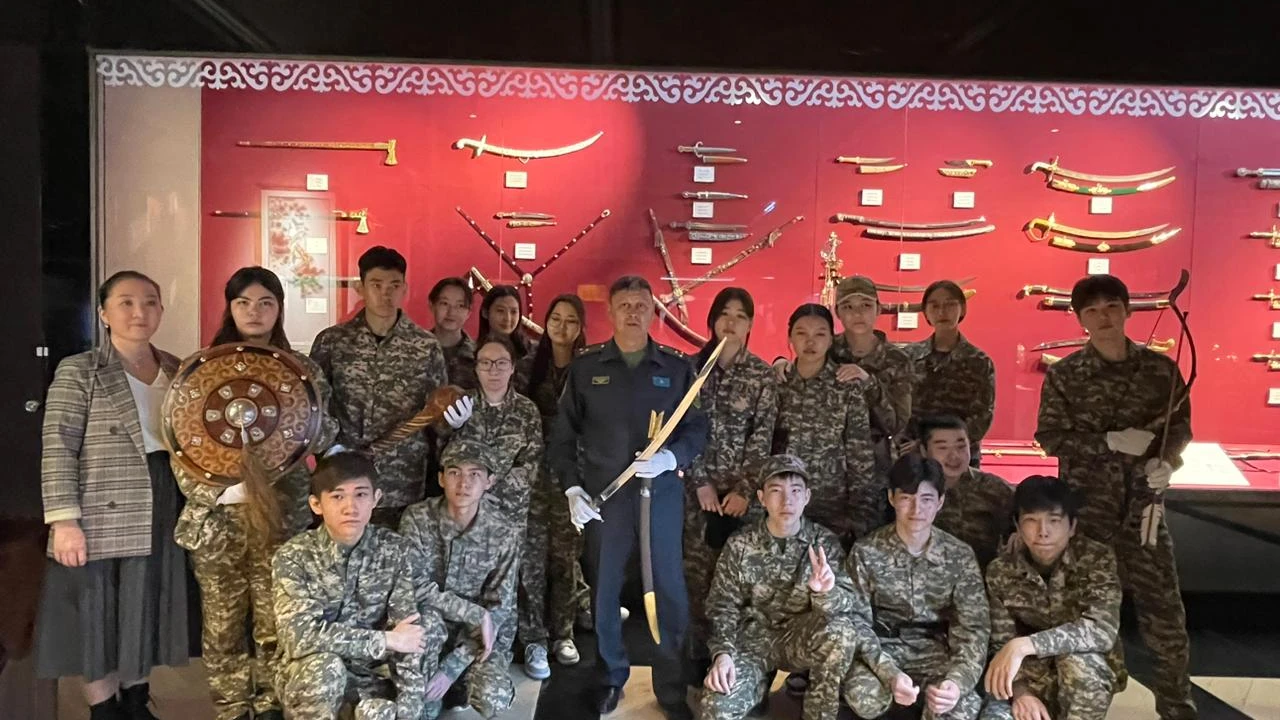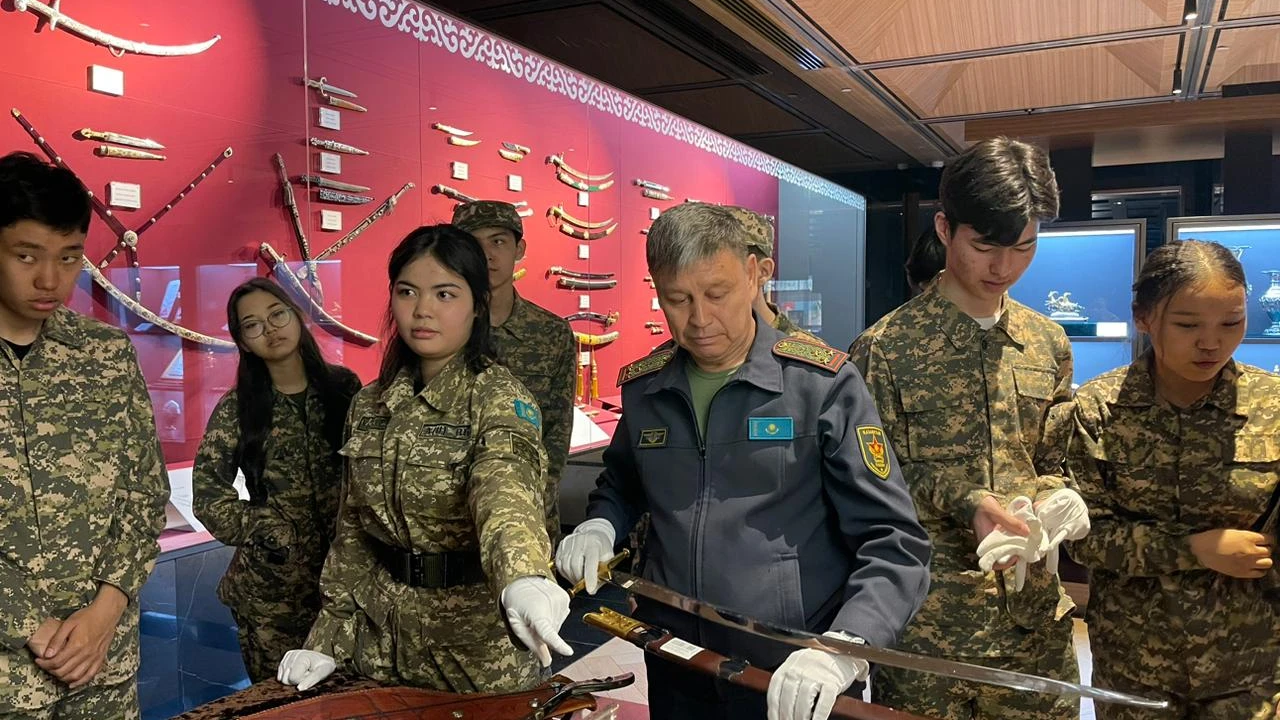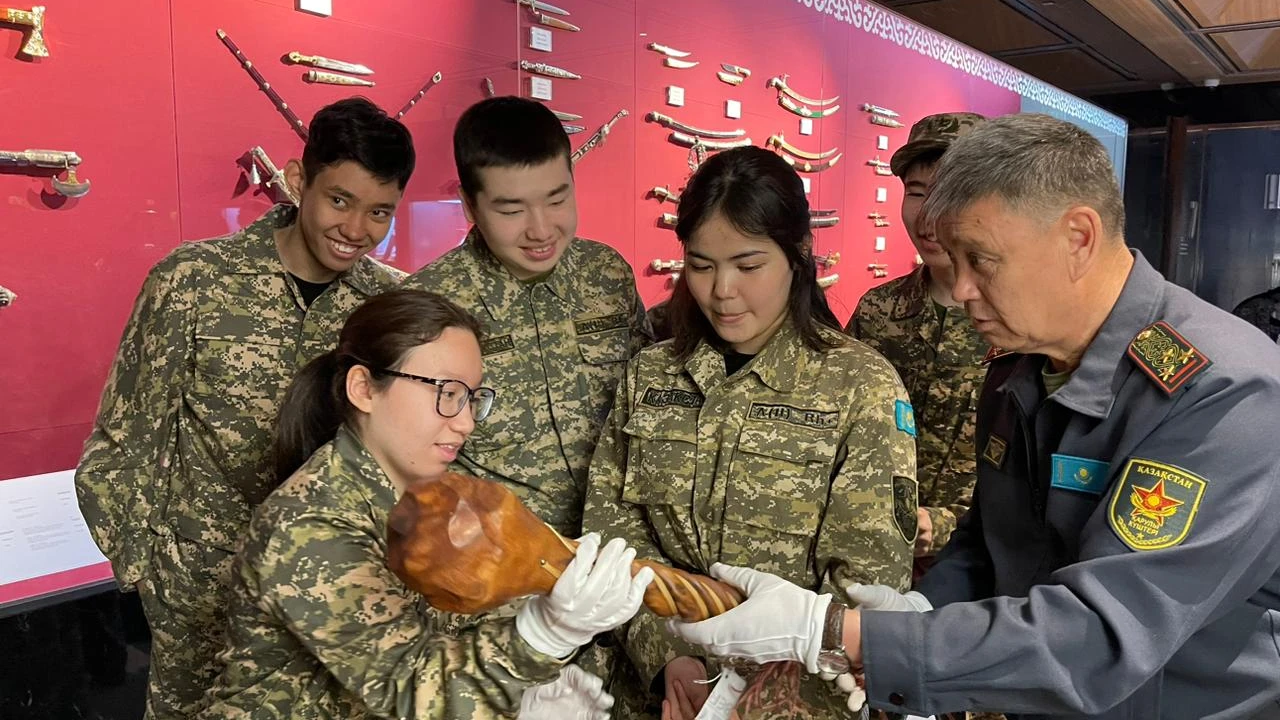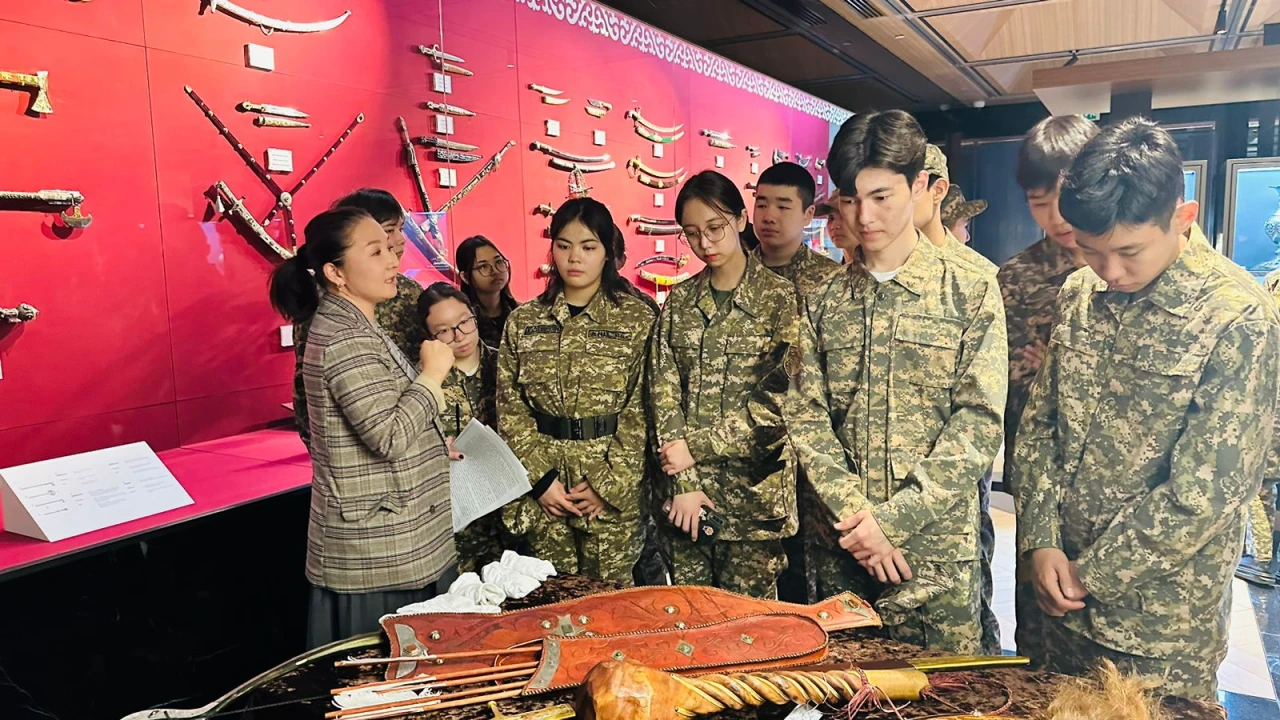



The Presidential Center of the DPA of the Republic of Kazakhstan hosted a museum lesson titled “Institute of Batyrship: traditions, status and armament“ for 10th-grade pupils from Gymnasium No. 32 in Astana on the eve of Defender of the Fatherland Day.
In the museum hall “Kazakhstan in the world community”, where the lesson was held, the lecturer talked to the children about the concept of independence of the state, told about the history of the state holiday, Defender of the Fatherland Day, celebrated in Kazakhstan since 2013.
Schoolchildren also learned about the tradition of giving weapons, its history and peculiarities.
“Weapons have always been a symbol of power, so they were often presented as gifts to rulers. Looking back through time, one of the oldest and most revered customs is the gifting of cold weapons. In modern society, it has not lost its relevance. It symbolizes a sign of special respect for the person to whom it is presented,” said Gulsum Sarsekeyeva, senior expert of the Presidential Center.
Afterwards, high school pupils became acquainted with the exhibit's weapon collections, even touching some of them.
Having revealed the concept of “bes karu”, the lecturer told about five types of weapons of Kazakh batyr and the institution of batyrship in general.
“Batyrship was a special military-political institution in the nomadic society of the Kazakhs, which played a leading role in the military organization. The batyr had a life mostly engaged in military craft. Therefore, members of this particular social class lived their entire lives engaged in combat and did not give up their weapons until they were elderly. For a hero to die in war was considered an honor,” she emphasized.
Kuanysh Zhumagatov, a teacher of Primary Military and Technological Training of School-Gymnasium No. 32, who accompanied the schoolchildren, thanked for the organization of the museum lesson, noting that the lesson contributed to the development of patriotic feelings: love for the Motherland and respect for the history of the Fatherland and its people.



